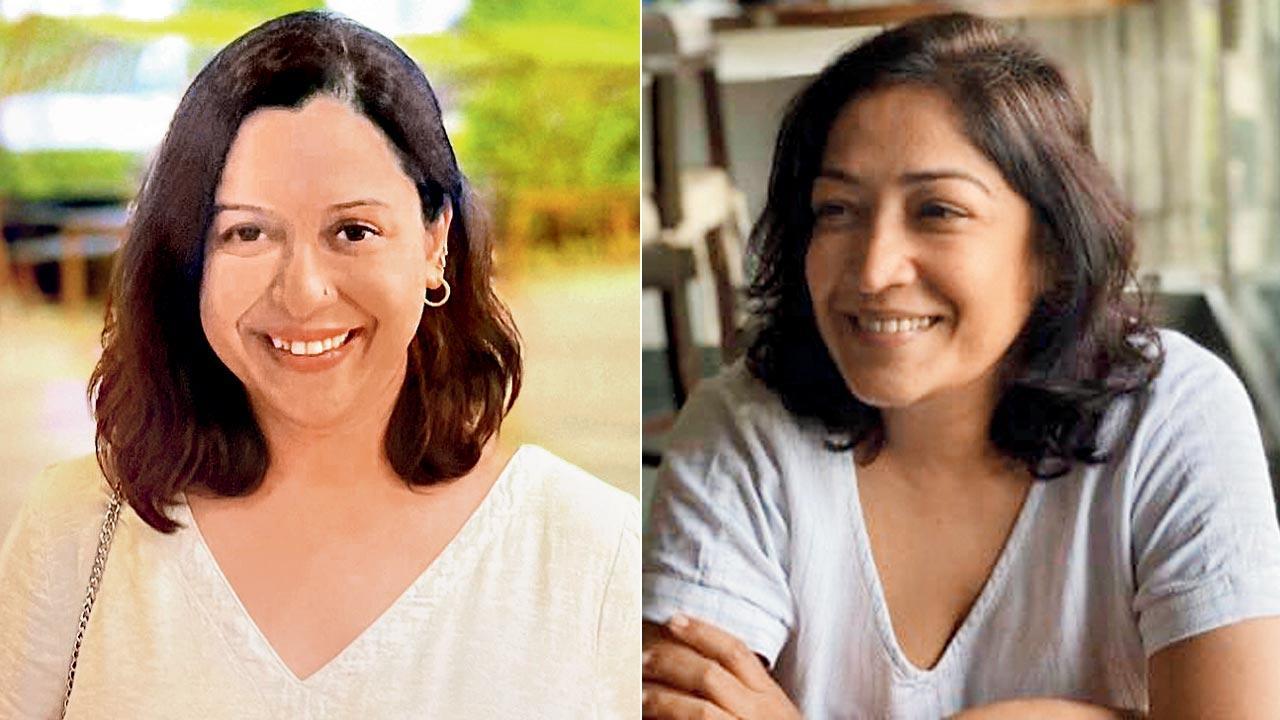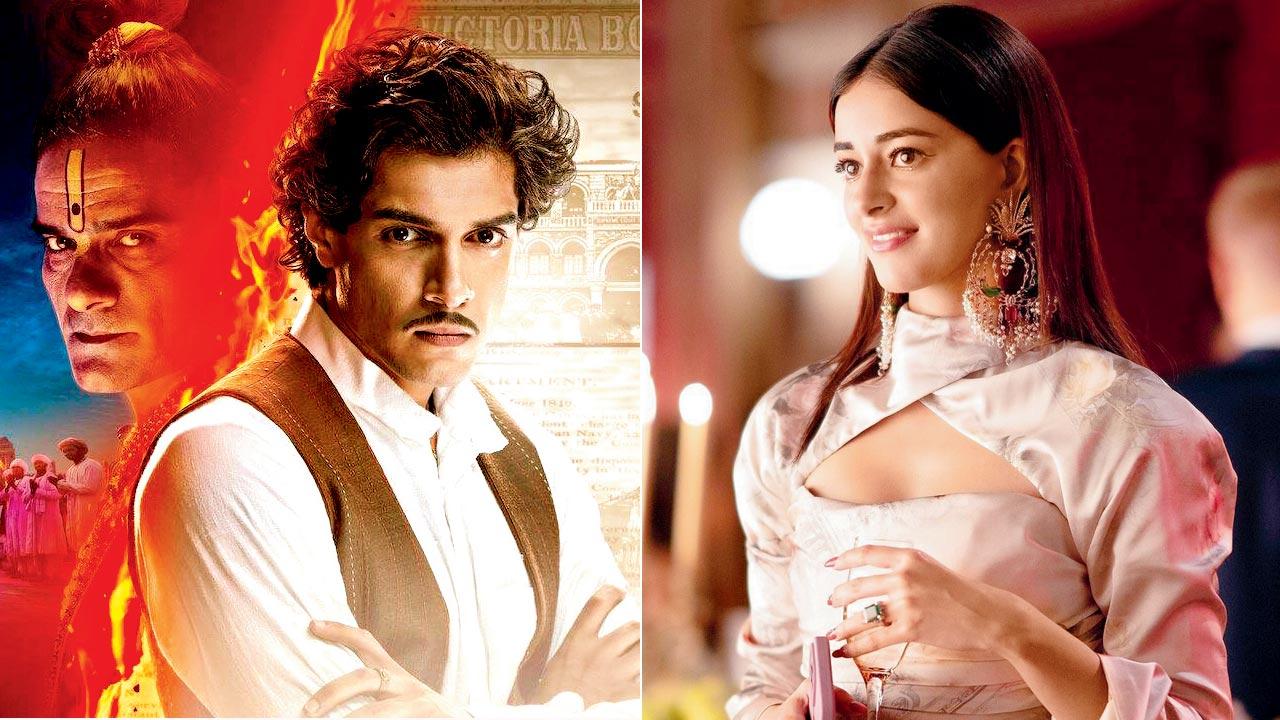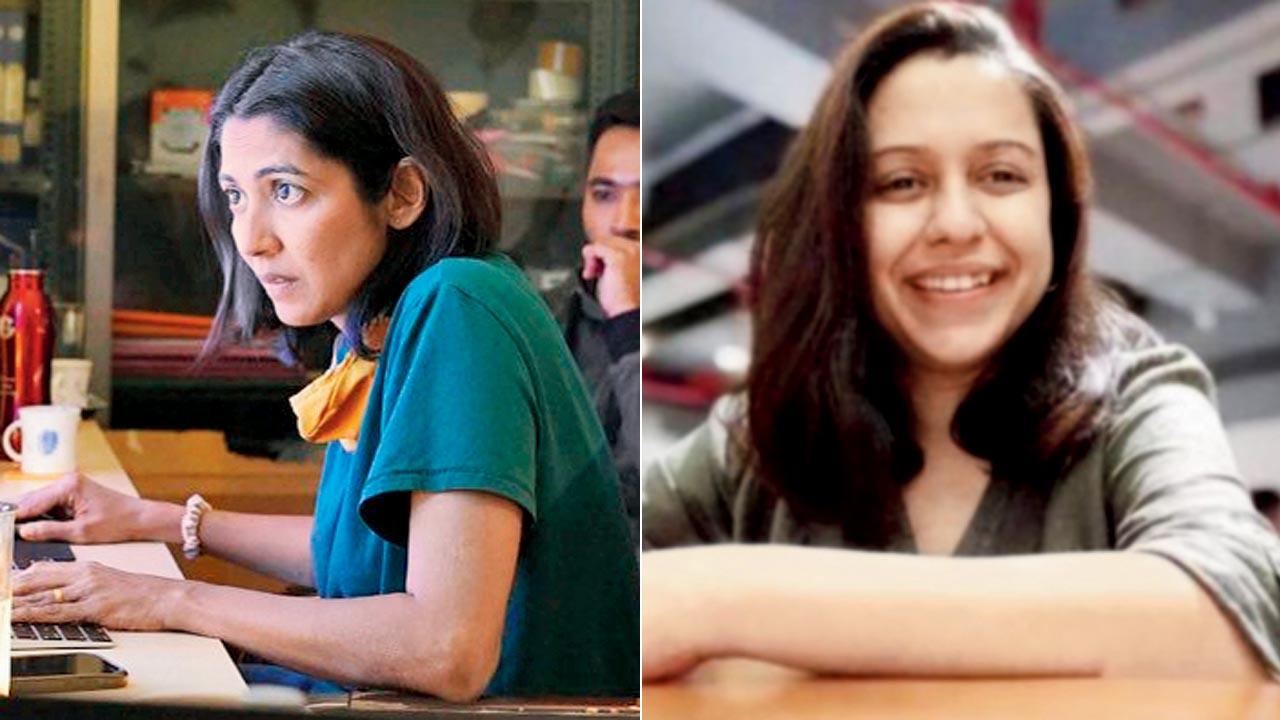Leading editors speak up on how production houses impose unfair cost caps on their meals

Antara Lahiri and Deepa Bhatia
Away from the spotlight, hours-long footage is scrutinised, pieced together and woven into a taut narrative that the audiences finally witness on screen. Editing is an art that’s crucial, but unfortunately invisible. Sadly, Bollywood’s leading editors too are being invisibilised by being subjected to unfair working conditions.
Last November, mid-day reported that a group of editors met the Association of Film and Video Editors (AFVE), and the Federation of Western India Cine Employees (FWICE) to pursue their demand for fair working practices (Change begins with minor edits, Nov 8). Now, it appears that their woes have only worsened with production houses discriminating against them with something as basic as meals.
ADVERTISEMENT
 Shweta Venkat and Antara Lahiri’s upcoming projects include Junaid Khan’s Maharaj and Ananya Panday’s Call Me Bae respectively
Shweta Venkat and Antara Lahiri’s upcoming projects include Junaid Khan’s Maharaj and Ananya Panday’s Call Me Bae respectively
Antara Lahiri, who has edited Ananya Panday’s next Call Me Bae, says until recently, many editing teams weren’t even provided food, or meal reimbursements. “It’s sad, but meal expenses have to be discussed during negotiations. If you don’t, productions assume you will never be eating in the course of the project,” she says dryly.
She highlights the recent development of caps on food reimbursement, and how they are shockingly low for editors, while production houses spend lavishly on meals for actors, filmmakers and the on-set teams. Lahiri rues, “There is a bizarre inequity in the way caps are imposed. A head of department [the editor] can order a meal worth, say R700. But the associate and assistant editor’s meal cap is R400-500. Why there is a hierarchy in food is beyond me! [In contrast], sometimes, I’ve heard directors and production teams brag about the gourmet food that was served on set. But these same teams expect us to survive on cheap, greasy dabba. Eyebrows are raised if you or your team wants to eat healthy. Is it only an actor’s prerogative to stay fit?”
 Shweta Venkat and Antara Lahiri
Shweta Venkat and Antara Lahiri
That’s not all. She has also experienced studios serving contaminated food to editors. “Once, I saw worms in the rice, and this was a tiffin service ordered by a well-known production house,” she recalls.
There's more to it, as Lahiri recollects this one time she had a rat run over her foot in the cafeteria of a "high profile" production. "There’s even been a situation where I’ve been editing a really well known project and you couldn’t go and sit in the open air cafeteria once it was dark outside. Because you’d see a morbid sort of rat dinner Party playing out on the tables there. When it comes to basics like food, there seems to be an elitism around all things related to shoot and a blatant disregard for the edit, where films and shows actually get made,” she says.
Senior editor Deepa Bhatia, credited with movies like Taare Zameen Par (2007) and Kedarnath (2018), says earlier, food costs would be borne by the producers. “This is a relatively new trend,” she notes.
Bhatia adds, “The food costs of assistant editors seem to pinch the producers. But entourage costs of stars, directors and other above-the-line crew is affordable. The inequality is frightening.”
An editor, on the condition of anonymity, tells us that on a recent project, two members had a per-day food limit of as less as R150. He rues that one can probably get only an omelette at that price. Another editor working on a series shares that his team was given two options—order food worth R150, or have the production house arrange lunch box for them. “My team chose the second option. A week later, we all had food poisoning,” he recalls.
The horror stories don’t end. Another insider notes that some production houses determine the food budget according to the film’s scale. “So, the team of a spectacle project was provided better quality food than that of a small-budget film,” says the source.
Shweta Venkat, who worked as the editor on the upcoming Maharaj and last year’s Thank You For Coming, says the discrimination in meals is part of a bigger disparity. “Our community is severely underpaid. Movie budgets have increased, actors and technicians may be charging more, but when it comes to post-production and editing, we’re still working on older rates. If you have X crore as your budget, given the kind of work an assistant editor puts in, their pay has to be [sizable].” Venkat adds that it’s impossible for an assistant editor to make a living in Mumbai at the current pay scale.
"If I were an assistant coming to Mumbai and I work with an HOD (Head of department), my fee wouldn't be more than Rs 50,000, that too for an experienced assistant editor. If you get that per month, it's a great deal. But conveyance is not included in it, then you have to pay your rent, send money to your family, and bear your own expenses. They don't get conveyance and then some of these production houses, not all, have these ridiculous food caps and editors are made to stay back overnight. It's a very messy situation. It has been this way for some time. But now it's becoming worse. Whoever comes and asks me for work, I keep telling them, 'Editing as a profession is not what you can solely depend on as your primary source of income. It's impossible to sustain," says Venkat.
As they tackle restrictive food budgets, low pay and lack of conveyance allowance, most editors feel that producers almost don’t care about treating them with dignity. "Any production manager can arrange a good tiffin dabba delivery that will be within budget. It is about treating your crew with dignity and making them feel like you care for them as a part of your team. Editing happens behind the scenes. It's not glamorous. In fact, the editing room is where mistakes must be corrected, stories rewritten, actors' performances improved through judicious combination of shots, scenes made to look better by applying effects... it's the hard part of filmmaking that nobody really wants to reveal to the public. Somehow, we stay hidden and so do our problems," says a senior editor, credited with several acclaimed films, on the condition of anonymity.
Bhatia and Venkat call for urgent, affirmative action to address the discrimination. “In the last four-five years, some of us have come together to figure out how these issues can be addressed. We’ve begun working with AFVE and we’re trying to mobilise people,” says Venkat. Lahiri, however, says that many in the community don’t speak up. “I get so many responses every-time I post this sort of message to my social media. For example, someone was told their Rs 350 food bill wouldn’t be cleared but the same production would be happy to pay upwards of Rs 500 for a star’s coffee or sandwich. Sadly very few people speak up. There’s a fear of being blacklisted. Every time we try to take a step forward with the union, we rarely end up making progress because very few editors are willing to make a formal complaint.”
 Subscribe today by clicking the link and stay updated with the latest news!" Click here!
Subscribe today by clicking the link and stay updated with the latest news!" Click here!








